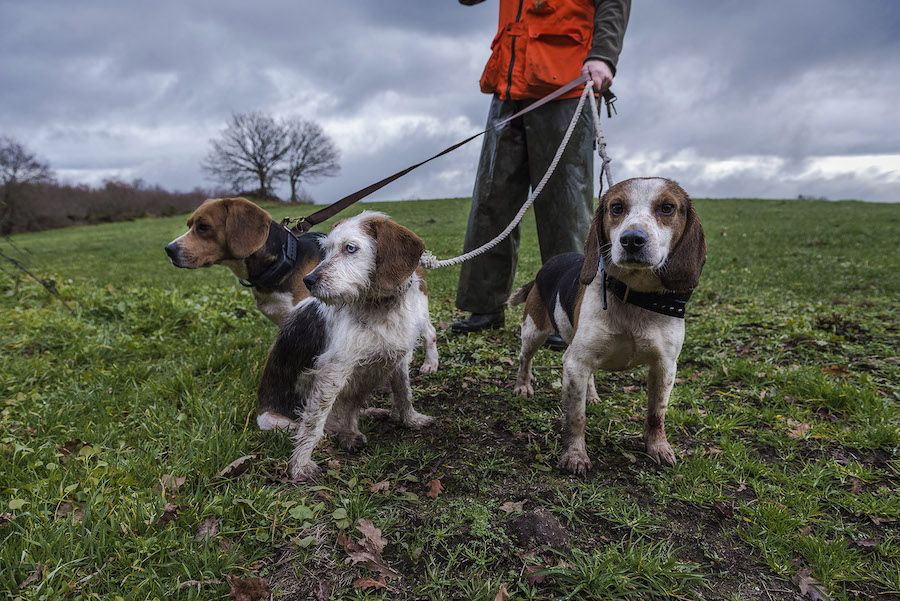
Foto: Ruth Montiel Arias / Bestiae
Julio, 2022 [Press Release]
-
The legal operators’ organisation warns about the situation in which these animals could be left if the proposals of certain sectors to exclude them from the general control system make progress, which has already happened in some regional laws such as in Navarre.
-
Dogs used for hunting, guarding, herding or guardian roles could be abandoned and left without sufficient legal protection in a country where abuse and neglect are endemic problems.
On 5 January 2022, the reform of the Civil Code came into force in Spain, which recognised animals as sentient beings, not goods. Following this important legislative change, other important legislative projects related to animal protection have been and are currently being processed.
INTERcids, an association made up of legal operators (judges, prosecutors, lawyers, solicitors, police officers, etc.) has expressed its deep concern about these rules, among many other issues, due to the risk of a decrease in the current protection of dogs, in particular those used in certain human activities.
Navarre excludes dogs used for hunting and other purposes from its animal protection law
The Regional Law 18/2022, of 13 June, partially modifying the Regional Law 19/2019, of 4 April, on the protection of pets in Navarre, in force since 21 June, is a clear example of this risk. The aim of this amendment was precisely to exclude from its scope of application what it calls «working or auxiliary animals or those with a social or sporting function«, which includes hunting dogs.
The reform of this autonomous law means that, in this territory, working or auxiliary animals or those with a social or sporting function (such as guard dogs, sheep dogs, assistance dogs, retrieving dogs, rescue dogs, dogs used by the security forces and hunting dogs and ferrets), may be trained to be aggressive, forced to work in a manner detrimental to their health or well-being, beyond their natural strength or ability, or using means which cause them injury, pain, suffering and distress, provided that this is «justified by their activity«.
Likewise, it is intended that these dogs remain excluded from any breeding control system, ignoring the problems associated with the massive and indiscriminate breeding of dogs for purposes of human interest, such as hunting. Breeding that, without the slightest administrative control, encourages the practices of mistreatment and abandonment that countless dogs in Spain suffer year after year.
The negative precedent of the Castilla-La Mancha Animal Protection Law of 2020
Law 7/2020 of 31 August on the Welfare, Protection and Defence of Animals in Castilla-La Mancha already represented a step backwards in the general framework for the protection of dogs in this community. This law removed the protection of animals used in hunting activities, calling them «hunter’s auxiliary animals«, leaving them outside the general obligations relating to their care and protection against aggression or situations of danger, discomfort, nuisance or injury that could be caused to them by people or other animals (Art. 4). Also problematic is the exception of this law relating to greyhounds with regard to the prohibition of attaching animals to moving motor vehicles (Art. 5).
Spanish hunting strategy aims to simplify obligations with hunting and ‘rehalas‘ dogs
In March 2022, the Ministry of Agriculture approved the National Strategy for Game Management, whose measures include a proposal to «simplify the regulatory requirements for hunting and ‘rehalas’ dogs (group of dogs kept and used for big game hunting), as long as the appropriate hygiene, health and animal welfare conditions are met«.
In a letter to the Ministry, INTERcids warned that the protection of the welfare of dogs is not compatible with a simplification of the obligations of dog owners. Much less so in the case of dogs used for hunting, precisely because they are destined for an activity which requires even more control and which, especially in certain types of hunting, can be very dangerous for them.
«Dogs are legally considered, in any case and as a species, to be companion animals, without any distinction according to the specific activity carried out with them, and as such they are protected through an abundance of regulations». INTERcids recalls that Spain has fully ratified the European Convention for the Protection of Pet Animals, rejecting any negative discrimination against dogs in the Spanish legal system.
Uncertainty over dogs used for human activities in future Spanish animal protection law
The Spanish government is currently preparing a draft law on animal protection, which aims to unify and establish minimum standards for the protection of pets throughout the country. Among other points, INTERcids is very concerned about the possibility that, under pressure from certain sectors, dogs used in activities such as hunting, guarding, herding, security, etc. will be excluded from many of the obligations that this law will impose.
This could mean, for example, that while all other dog owners have to prove a minimum level of training to keep their animals, or be registered in a public register if they wish to breed, those who own dogs for this type of activity could be exempted.
INTERcids explains that there is no justifiable reason to exclude these dogs from the same public control system that applies to other dogs. A control system that would in any case serve to facilitate the identification, prosecution and punishment of infringements and offences, as it is the responsibility of public administrations to ensure. «The fact that these dogs are subject to administrative control, authorisation for breeding, etc. should not be a concern for responsible owners, who take proper care of their animals,” they say.
The association demands that, in any case, if the need for specific regulations for these dogs were to be considered, the aim should be to provide them with a higher level of protection, «especially when they are used for activities which, by their nature, can pose a risk to their well-being and even their lives».
